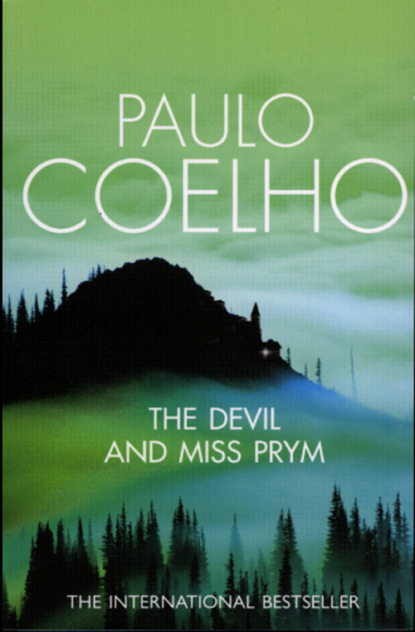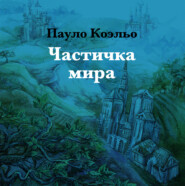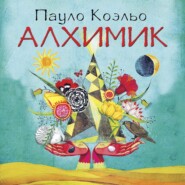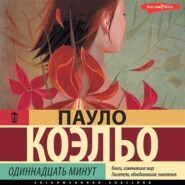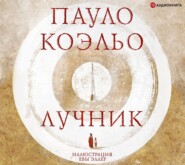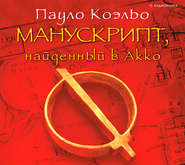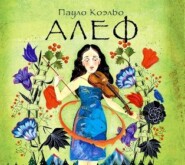По всем вопросам обращайтесь на: info@litportal.ru
(©) 2003-2024.
✖
The Devil and Miss Prym
Автор
Год написания книги
2019
Настройки чтения
Размер шрифта
Высота строк
Поля
When he felt sure that any possible observer would have lost interest and moved on without anything to report, he dug a hole close to a rocky outcrop in the shape of a Y and hid one of the bars there. Then he climbed a little higher, spent another hour as if in rapt contemplation of nature, spotted another rocky outcrop – this time in the form of an eagle – and dug another hole, in which he placed the remaining ten gold bars.
The first person he saw as he walked back to the village was a young woman sitting beside one of the many temporary rivers that formed when the ice melted high up in the mountains. She looked up from her book, acknowledged his presence, and resumed her reading; doubtless her mother had told her never to talk to strangers.
Strangers, however, when they arrive in a new place, have the right to try and make friends with people they do not know, and so he went over to her.
‘Hello,’ he said. ‘Very hot for the time of year.’
She nodded in agreement.
The stranger went on: ‘I’d like you to come and look at something.’
She politely put down her book, held out her hand, and introduced herself.
‘My name’s Chantal. I work in the evenings at the bar of the hotel where you’re staying, and I was surprised when you didn’t come down to dinner, because a hotel doesn’t make its money just from renting rooms, you know, but from everything the guests consume. You are Carlos from Argentina and you live in Colombia Street; everyone in the village knows that already, because a man arriving here outside of the hunting season is always an object of curiosity. A man in his fifties, with greying hair, and the look of someone whom has been around a bit.
‘And thank you for your invitation, but I’ve already seen the landscape around Viscos from every possible and imaginable angle; perhaps it would be better if I showed you places you haven’t seen, but I suppose you must be very busy.’
‘I’m 52, my name isn’t Carlos, and everything I wrote on the form at the hotel is false.’
Chantal didn’t know what to say. The stranger went on:
‘It’s not Viscos I want to show you. It’s something you’ve never seen before.’
She had read many stories about young women who decide to go into the forest with a stranger, only to vanish without trace. For a moment she was afraid, but her fear was quickly replaced by a desire for adventure: after all, this man wouldn’t dare do anything to her when she had just told him that everyone in the village knew all about him – even if none of the details were actually true.
‘Who are you?’ she asked. ‘If what you say is true, surely you realise I could turn you in to the police for passing yourself off with a false identity?’
‘I promise to answer all your questions, but first you have to come with me, because I really do want to show you something. It’s about five minutes’ walk from here.’
Chantal closed her book, took a deep breath and offered up a silent prayer, while her heart beat in fear and excitement. Then she got up and followed the stranger, convinced that this would prove to be yet another disappointing encounter, one which started out full of promise and turned into yet another dream of impossible love.
The man went over to the Y-shaped rock, indicated the recently dug earth, and suggested she uncover what lay buried there.
‘I’ll get my hands dirty,’ protested Chantal. ‘I’ll get my dress dirty too.’
The man grabbed a branch, broke it and handed it to her to use as a spade. She found such behaviour distinctly odd, but decided to do as he asked.
Five minutes later, a grubby, yellowish bar lay before her.
‘It looks like gold,’ she said.
‘It is gold. And it’s mine. Now please cover it over again.’
She did as she was told. The man led her to the next hiding place. Again she began digging, and this time was astonished at the quantity of gold she saw before her.
‘That’s gold too. And it’s also mine,’ said the stranger.
Chantal was beginning to cover the gold over again with soil, when he asked her to leave the hole as it was. He sat down on one of the rocks, lit a cigarette, and stared at the horizon.
‘Why did you want to show me this?’ she asked.
He didn’t respond.
‘Who are you exactly? And what are you doing here? Why did you show me this, knowing I could go and tell everyone what’s hidden here on the mountain?’
‘So many questions all at once,’ the stranger replied, keeping his eyes fixed on the mountains, as if oblivious to her presence. ‘As for telling the others, that’s precisely what I want you to do.’
‘You promised me that, if I came with you, you would answer any questions I asked you.’
‘In the first place, you shouldn’t believe in promises. The world is full of them: promises of riches, of eternal salvation, of infinite love. Some people think they can promise anything, others accept whatever seems to guarantee better days ahead, as, I suspect, is your case. Those who make promises they don’t keep end up powerless and frustrated, and exactly the same fate awaits those who believe those promises.’
He was making things too complicated; he was talking about his own life, about the night that had changed his destiny, about the lies he had been obliged to believe because he could not accept reality. He needed, rather, to use the kind of language the young woman would understand.
Chantal, however, had understood just about everything. Like all older men, he was obsessed with the idea of sex with a younger woman. Like all human beings, he thought money could buy whatever he wanted. Like all strangers, he was sure that young women from remote villages were naive enough to accept any proposal, real or imaginary, provided it offered a faint chance of escape.
He was not the first and would not, alas, be the last to try and seduce her in that vulgar way. What confused her was the amount of gold he was offering: she had never imagined she could be worth that much, and the thought both pleased her and filled her with a sense of panic.
‘I’m too old to believe in promises,’ she said, trying to gain time.
‘Even though you’ve always believed in them and still do?’
‘You’re wrong. I know I live in paradise and I’ve read the Bible and I’m not going to make the same mistake as Eve, who wasn’t contented with her lot.’
This was not, of course, true, and she had already begun to worry that the stranger might lose interest and leave. The truth was that she had spun the web, setting up their meeting in the woods by strategically positioning herself at a spot he would be sure to pass on his way back – just so as to have someone to talk to, another promise to hear, a few days in which to dream of a possible new love and a one-way ticket out of the valley where she was born. Her heart had already been broken many times over, and yet she still believed she was destined to meet the man of her life. At first, she had let many chances slip by, thinking that the right person had not yet arrived, but now she had a sense that time was passing more quickly than she had thought, and she was prepared to leave Viscos with the first man willing to take her, even if she felt nothing for him. Doubtless, she would learn to love him – love, too, was just a question of time.
‘That’s precisely what I want to find out: are we living in paradise or in hell?’ the man said, interrupting her thoughts.
Good, he was falling into her trap.
‘In paradise. But if you live somewhere perfect for a long time, you get bored with it in the end.’
She had thrown out the first bait. She had said, though not in so many words: ‘I’m free, I’m available.’ His next question would be: ‘Like you?’
‘Like you?’ the stranger asked.
She had to be careful, she mustn’t seem too eager or she might scare him off.
‘I don’t know. Sometimes I think that and sometimes I think my destiny is to stay here and that I wouldn’t know how to live far from Viscos.’
The next step: to feign indifference.
‘Right, then, since you won’t tell me anything about the gold you showed me, I’ll just thank you for the walk and return to my river and my book.’
‘Just a moment!’
The stranger had taken the bait.
‘Of course I’ll explain about the gold; why else would I have brought you here?’





